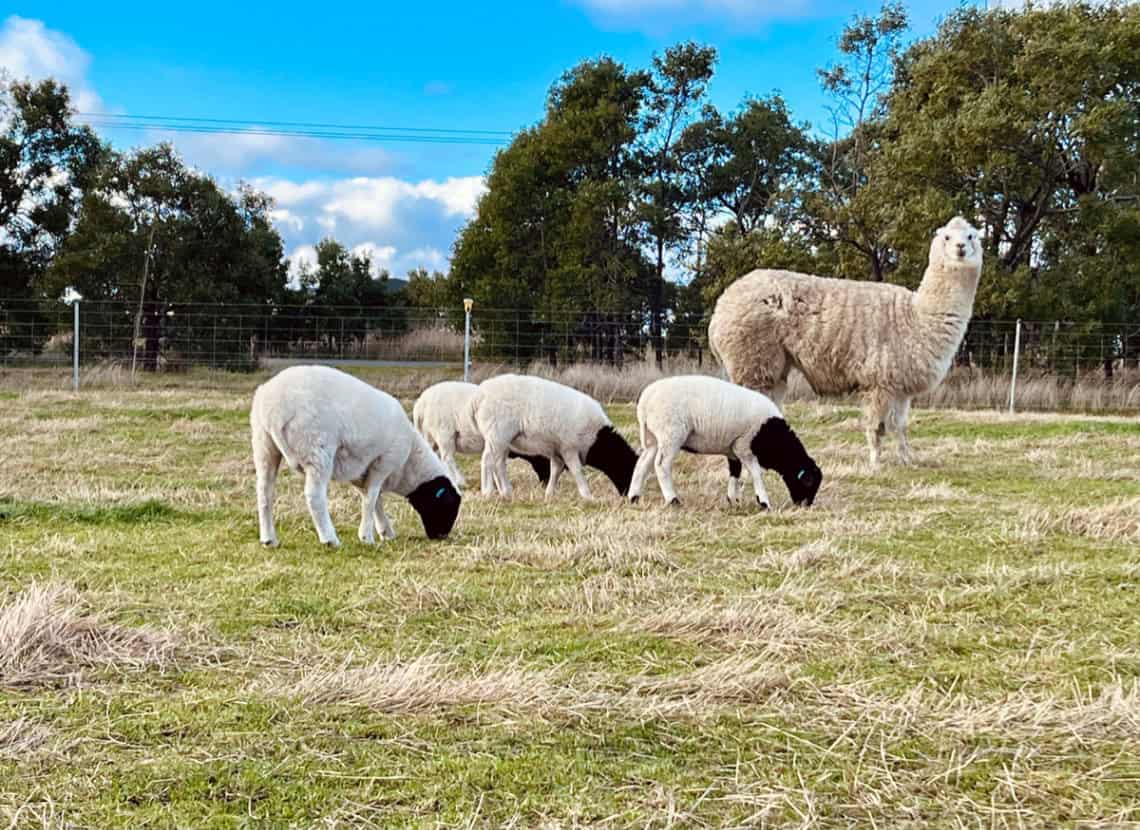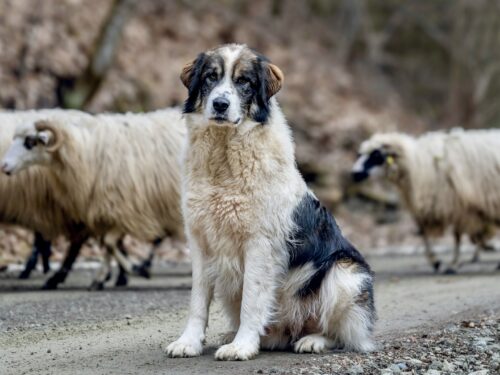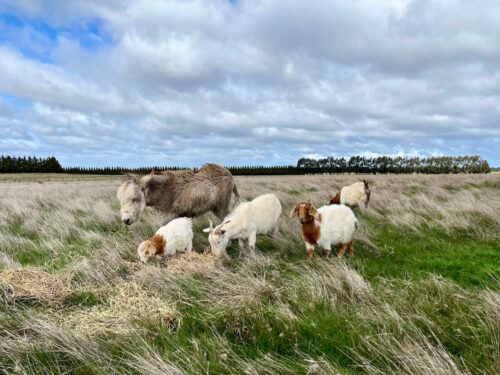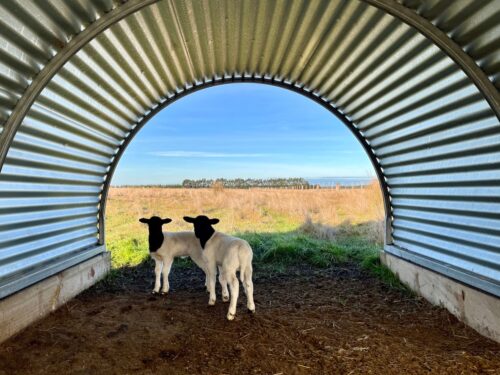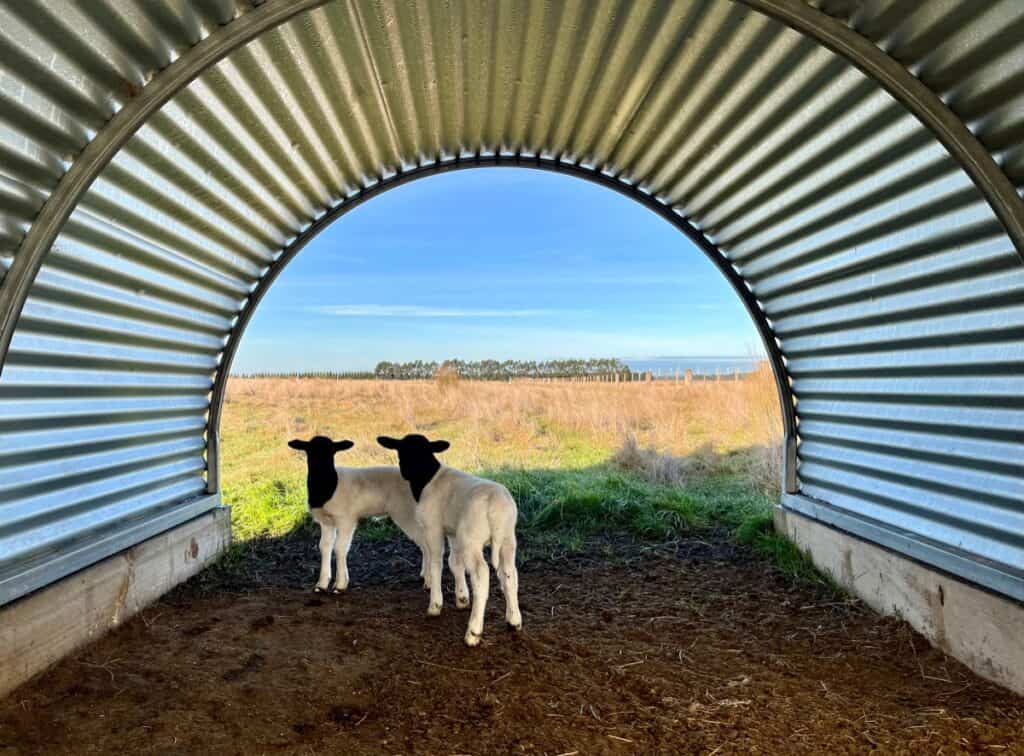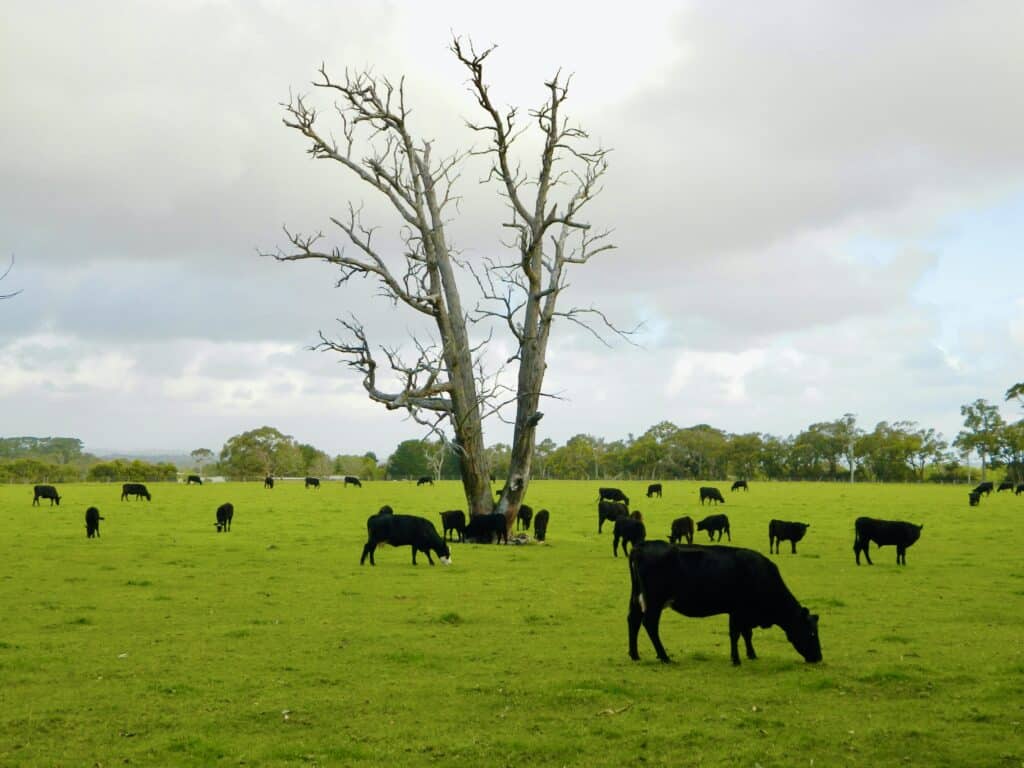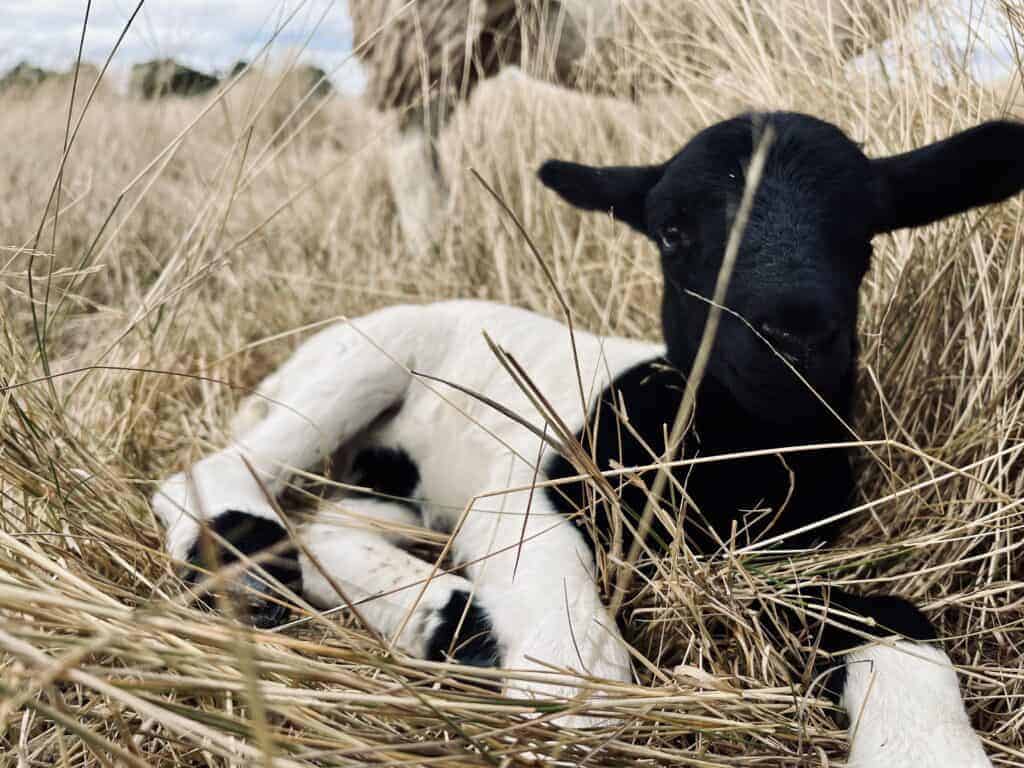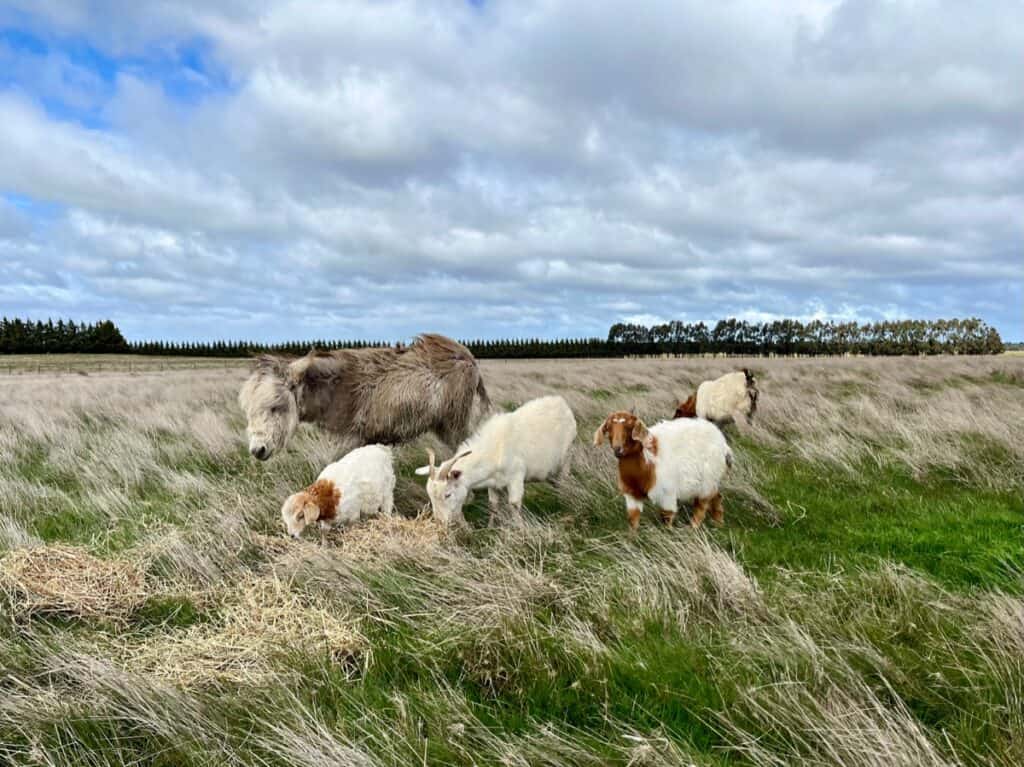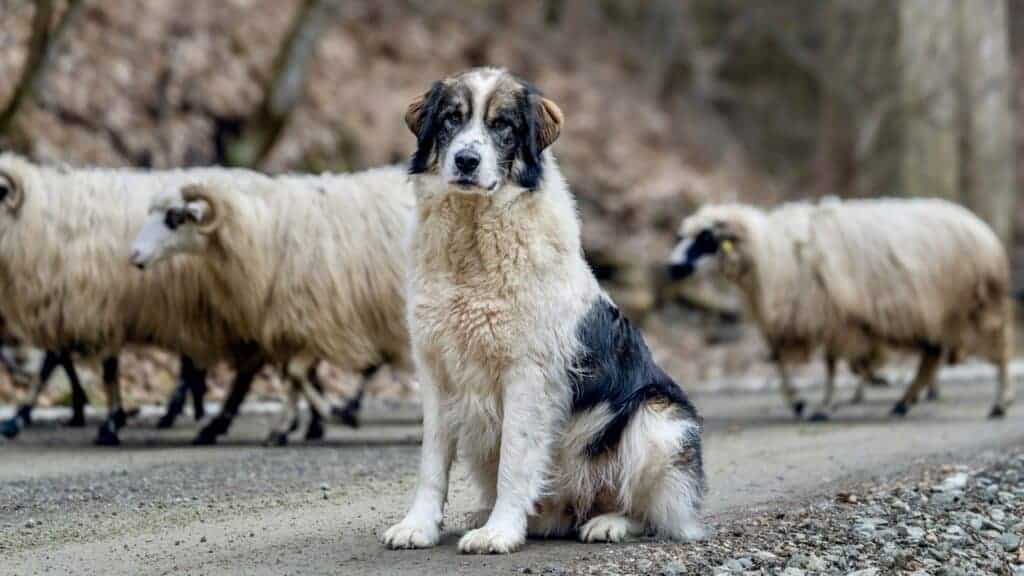Why choose a livestock guardian alpaca or llama?
Livestock guardian alpacas and llamas are popular around the world as predator deterrents for vulnerable herds of sheep and goat.
Their height, keen eyesight, low maintenance, protective nature, distain for dogs and other canids is what makes Alpacas and Llamas a good choice in a guardian animal.
Thanks to their excellent vision, seeing kilometres into the distance, and their exceptional hearing, they are quickly alerted to intruders. The generally silent alpaca or llama will make a high pitch ‘squeak’ or bray as a warning to the herd before chasing down the intruder, stamping and spitting on it if caught.
What is the cost and maintenance for a livestock guardian alpaca or llama?
Alpacas are generally low cost to purchase and their ongoing costs are minimal compared to other livestock guardian animals. Depending on your location, Llamas can be more difficult to procure, however, ongoing maintenance is much the same as an alpaca.
If you’re keeping sheep or goats, alpacas and llamas will easily slip into your current herd maintenance routine. Vaccinations and drenching can follow the same practice you currently have in place for your sheep or goats. Plus, most of the products used are also suitable for alpacas and llamas.
In terms of food, they are easily maintained on the same pasture as sheep and goats. Alpaca pellets are a good addition to their diets containing supplementary nutrients. Alpacas can be selective when fed hay.
They will need to be shorn, have their teeth ground and toes clipped annually. Where I am, most decent sheep shearers will have the relevant machinery on hand to take care of this. In regions with low sunlight it is recommended to give them a vitamin D injection leading into the winter months.
Do male or female Alpacas / Llamas make the best livestock guardian?
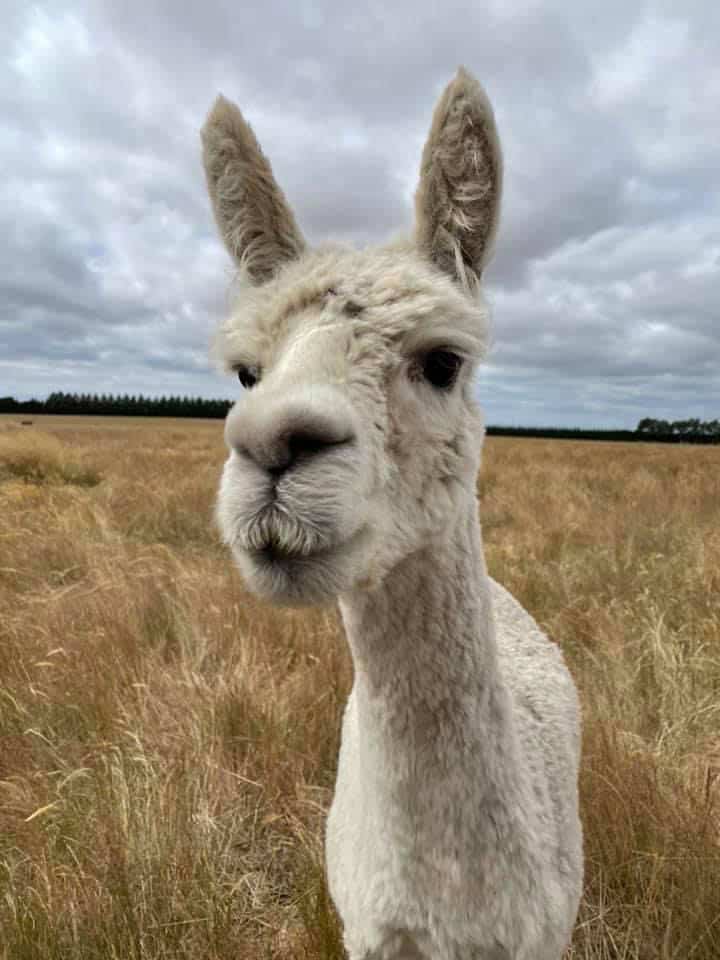
Alpacas and llamas are generally a docile animal and can be easily trained with routine. You do come across the occasional individual who seems to spit at you for no other reason than enjoyment.
Wethers (castrated males) and hembras (females) make the better guardians while machos (intact males) can be aggressive and often mount other livestock causing injury. Machos can also be far more stubborn and difficult for the handler.
When selecting your animal; temperament is key. Some Alpacas and Llamas make great guardians while others prove useless at the job. Try to source an alpaca or llama that has a proven history in flock protection.
How many livestock guardian alpacas or llamas do you need?
In order for successful integration into a mixed species herd, only keep one alpaca or llama with the livestock they are guarding. If you are keeping two or more alpacas or llamas you are likely to see them split away from the livestock they are intended to guard and make a seperate herd of their own.
As with any herd animal, alpacas and llamas don’t do well when kept solitary. If you plan on occasionally separating your guardian animal from the herd they are protecting it is a good idea to provide them with company. This can be in the form of another alpaca/llama or other livestock.
What predators will livestock guardian alpacas or llamas defend against?
Livestock guardian alpacas and llamas are at their most efficient against smaller predators like foxes, small wild dogs, eagles and crows. Anything larger such as a pack of wild dogs, dingoes or cougars and you are likely setting your new guardian animal up to be sacrificial.
Assessing the predators in your area will quickly prove whether an alpaca or llama is the right guardian for your situation. If an alpaca or llama is not suitable you may need to look at the potential of a livestock guardian donkey or dog.
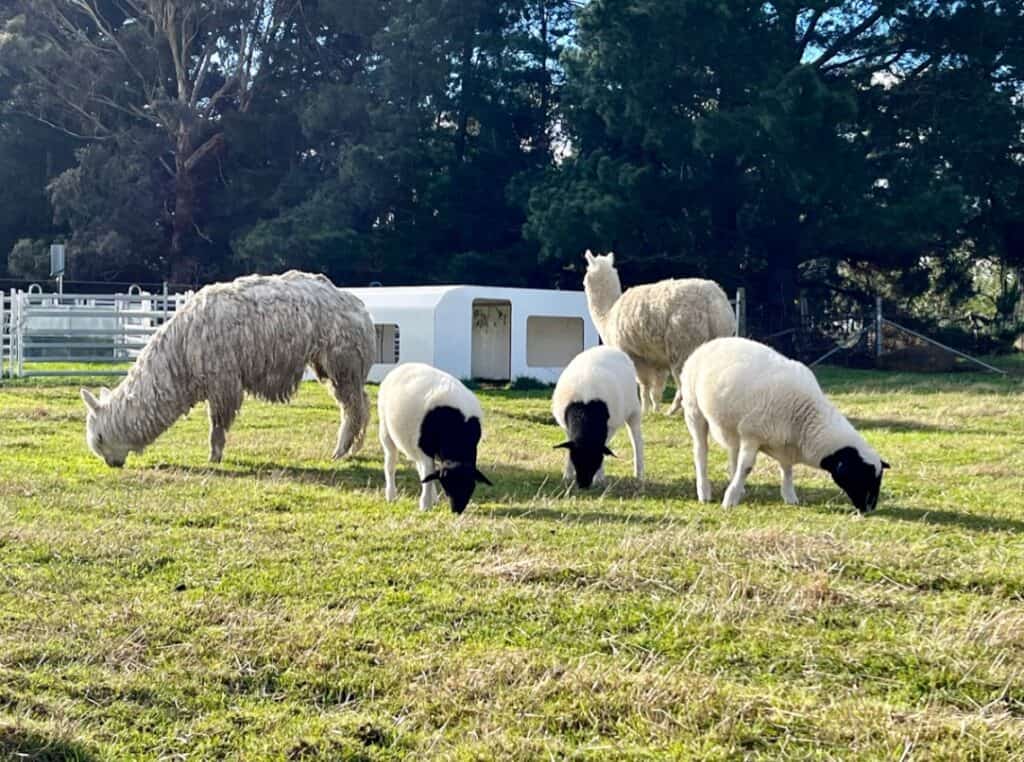
Pro’s and Con’s of livestock guardian alpacas and llamas
Pro’s
- In most regions the upfront cost to purchase an Alpaca/Llama is low
- They easily fit into your current livestock management practices – vaccinations, drenches, feed are mostly the same as sheep and goats
- With experience, wethers and females are easy to handle
- Alpacas and llamas have a communal poop pile – it’s easy to clean and great manure
Con’s
- Individuals can be uninterested in protecting other species of livestock
- Their effectiveness is limited to smaller predators – foxes, small dogs, eagles, crows, ect.
Guardian Alpacas at Silverholme
Alpacas were the first animal we introduced to Silverholme for the purpose of guarding lambs. The experience has had very mixed results. The success of an Alpaca is primarily based on the individuals personality. Some Alpacas are simply more protective than others, especially when it comes to herd mates of a different kin.
We also do keep multiple alpacas. Currently two, but we did have three at one stage. They do spend most of their daylight hours with each other and away from the mob of sheep, however, of a night they will sleep in close proximity to the mob.
If bonded with a herd of sheep or goats, Alpacas can offer protection. I have witnessed them herding my mob of 60 sheep out of the danger of a convocation of hunting eagles. Spotting the eagles harassing the sheep from a few hundred metres away, our three Alpacas were quick to make a move, tearing across the pasture toward the sheep. While two of the Alpacas circled and moved the sheep toward the homestead, the other stood between the mop and the eagles, charging full force toward them when they swooped.
Alpacas will also relentlessly chase a dog or fox around a pasture until they are either caught or pushed out of the paddock.
In saying this, these examples all took place in the light of day. It is hard to judge the performance of an Alpaca as a guardian animal during the night. We still lose lambs to foxes throughout the night from right under the Alpacas noses. But what I don’t know is the number of potential attacks they thwart before the occasional quick footed fox gets lucky.
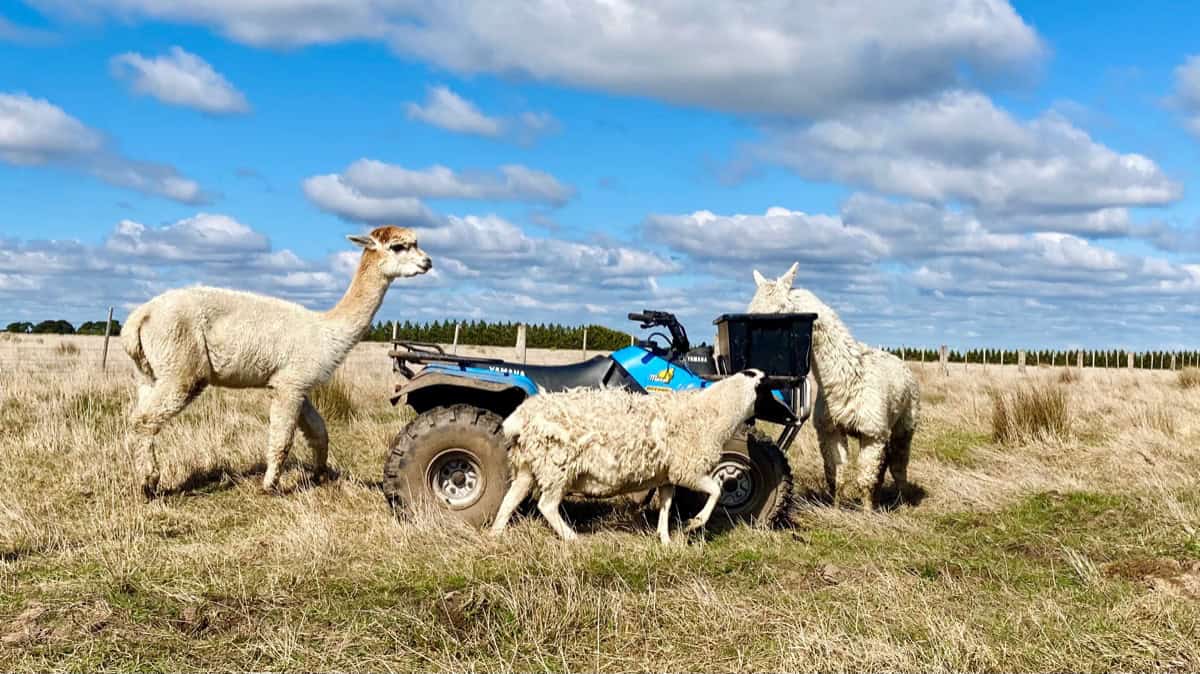
Guardian Llamas at Silverholme
I have no first hand experience in keeping llamas as guardian animals. I am told that their behaviour towards predators is similar if not slightly more aggressive than an alpaca. Their larger size and height is also advantageous.
In many parts of the United States, llamas are preferred over alpacas as guardian animals. In areas inhabited by coyotes it is common place to keep a llama as a guardian over an alpaca herd.
Other Livestock Guardian Animals
If you’re not sure if an Alpaca or Llama is suited to the needs of your farm or homestead you should look into the potential of a livestock guardian dog or livestock guardian donkey. Both are more suited to protecting against larger predators.
Livestock Guardian Dogs (LGD’s)
Livestock Guardian Donkeys
Best Livestock Guardian Animal for Lamb and Sheep
Share
